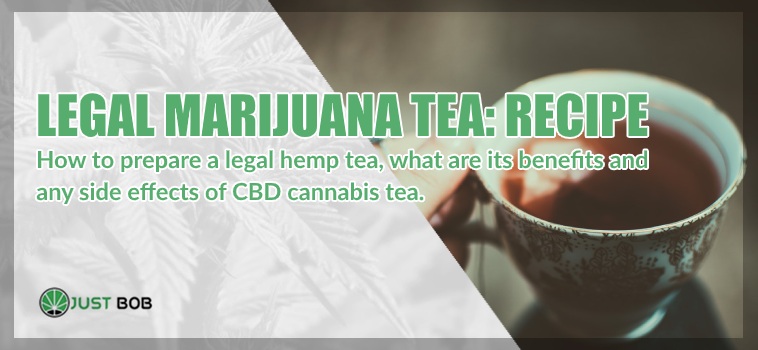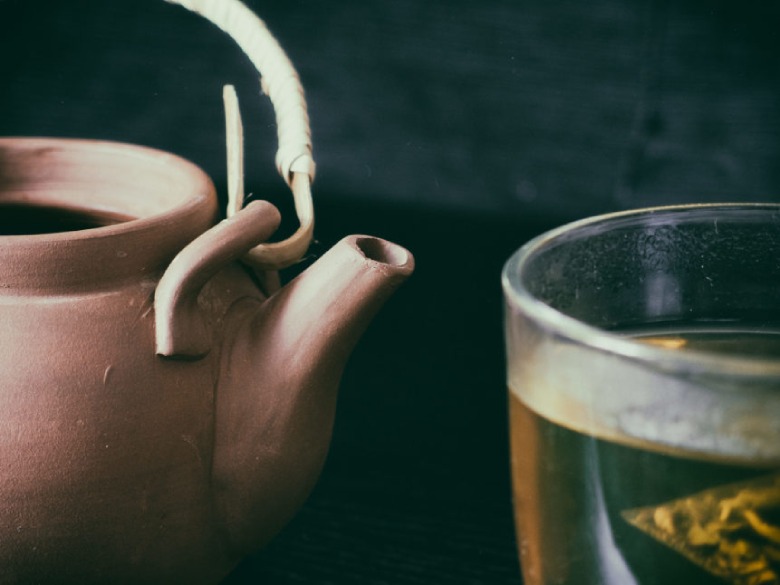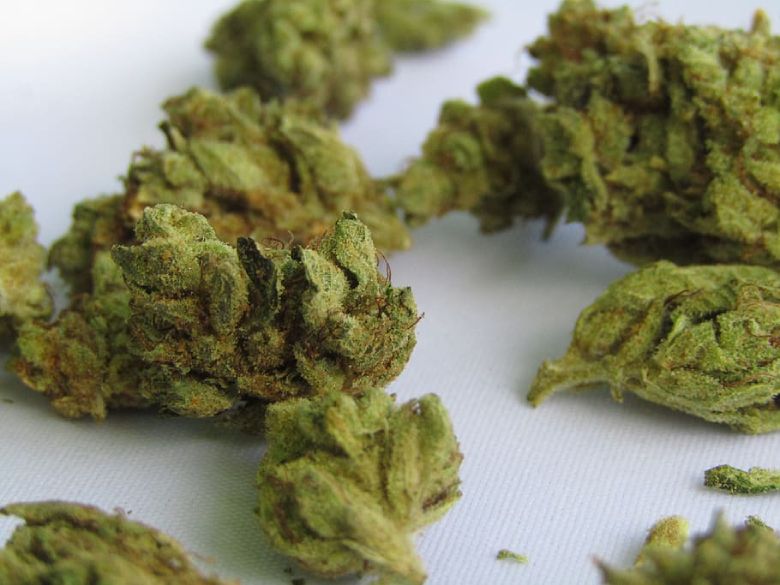Modified on: 16/01/2024
HOW TO PREPARE A LEGAL MARIJUANA TEA, WHAT ARE ITS BENEFITS AND ANY SIDE EFFECTS OF CBD CANNABIS TEA
Legal CBD marijuana tea is one of the best alternatives to inhalation. It is, in fact, a method of intake that does not affect the respiratory or cardiovascular systems, allowing you to benefit from all the positive effects of CBD cannabis without suffering the disadvantages of smoking weed.
Preparing cannabis decoctions and herbal teas also allow cannabinoids to enter the circulation more slowly and to exercise their function for longer times, relieving pain and giving a general feeling of well-being and relaxation for several hours after taking.
Preparing a herbal tea or smoking a decoction of legal herb allows you to fully preserve all the positive effects of its main cannabinoid, CBD (cannabidiol).
This active ingredient has proven beneficial properties. Here are which:
- inflammatory
- antioxidants
- anticonvulsants
- analgesic
- antidepressant
- soothing
On average, to feel its effects, you have to wait 30 minutes per hour, but these last for hours. It makes the legal hemp herbal tea an excellent drink to be taken, for example, in the evening to sleep better, capable like no other infusion to stretch the limbs and dissolve even more pressing concerns, to grant a real and therapeutic sleep restaurateur, just like CBD oil.
In the next paragraph, we will explain how to prepare a legal CBD cannabis herbal tea. But maybe you want to know other recipes too, such as hemp cake!
Read also: Where is cannabis legal? Discover the states where marijuana is legal
 Legal hemp tea: preparation
Legal hemp tea: preparation
Legal herbal tea can be basically any tea take one of two types: absolute or mixed.
An absolute herbal tea provides only a mix of leaves and inflorescences of CBD weed, carefully thought out and designed for infusions.
The CBD buds herbal tea is ideal for cannabis lovers, who are used to use the cannabis plants in many ways, precisely because the flavour and aromas of the plant are fully preserved, and they can appreciate all its nuances.
Furthermore, the concentration of legal medical marijuana herbal tea is higher, although it is possible to control it through different infusion times.
Higher concentrations are recommended for those accustomed to taking phytocannabinoids. Not only because they are less exposed to side effects (which will be discussed later), but also because their bodies will need higher quantities to manifest their positive impact.
The blends, on the other hand, are perfect both for having lower concentrations and for nuances of different aromas, smells and effects.
The main combinations are the following:
- Legal marijuana, chamomile and lemon balm: chamomile softens the strong taste of cannabis with its sweet notes, while lemon balm, with the lemon-like aroma of lemon balm, gives the preparation its delicate harmony. Chamomile is an excellent antispasmodic which adds to the anticonvulsant action of cannabis. Meanwhile, the lemon balm is a strong anti-inflammatory and carminative agent. It makes the preparation not only a perfect remedy for insomnia, but also and above all a solution to menstrual pain or inflammations;
- Legal marijuana and karkadè: karkadè is a plant of the Malvaceae family, characterized by the diuretic and antiseptic properties of the urinary tract. Once again, the full-bodied, warm and refreshing flavour of karkadè softens the bitter aftertaste of cannabis, making the infusion a delightful drink on the palate, as well as an excellent remedy for urinary problems;
- Legal marijuana, ginger and liquorice: ginger is an excellent anti-congestion, with analgesic properties; its action on the digestive process also makes it an excellent remedy for nausea. The combination of ginger and liquorice has always been an excellent remedy for digestive problems or to dispose of unusually large or heavy meals. The bitter taste of hemp softens the sweet notes of both liquorice and ginger, while the pungent and spicy tones of ginger give the infusion an interesting flavour, extremely pleasant on the palate.
- Legal hemp herbal tea benefits and preparation: in addition to the more traditional use of infusions, moreover, or through ingestion, they can also be used to relieve skin disorders water boils, inflammations or bruises. The infusion can be used as the base of a foot bath or a compress.
Read also: American states where marijuana is legal: here’s where you can smoke cannabis in the USA
Crafting Cannabis Infusions: Exploring Weed Tea and Weed Stem Tea with Coconut Oil
Cannabis enthusiasts are increasingly delving into the world of marijuana tea, exploring diverse concoctions such as weed tea and a weed tea, stem tea infused with coconut oil. Crafting cannabis-infused tea offers an alternative way to enjoy the therapeutic effects of cannabis without the need for smoking or traditional edibles.
To prepare cannabis-infused tea, one can use various parts of the cannabis plant, including the leaves, flowers, and stems. Ground cannabis or loose leaf tea can be employed, and the process involves a few key components such as a tea bag, a tea infuser, or a coffee filter. Coconut oil, renowned for its fatty substance, is often added to enhance the ground cannabis or tea itself’s potency and the absorption of cannabinoids.
The marijuana tea make method typically involves simmering cannabis in a tea bag or tea infuser in hot water, along with coconut oil, to create a cannabis-infused tea base. Cannabis stems, flowers, or a combination of both can be used, depending on the desired psychoactive effects. It’s crucial to note that the psychoactive drug in marijuana, THC, is activated through heat, making the hot cannabis tea make preparation method effective.
For those seeking non-psychoactive cannabinoids, CBD-rich strains consume cannabis oil or the incorporation of non-psychoactive cannabis plant parts, such as stems, can be considered. Additionally, adding almond milk or whole milk, which contains fat, can aid in the absorption of cannabinoids, enhancing the tea’s overall effects.
To ensure the best results drinking weed tea, individuals can use a fine mesh sieve or strainer to filter out plant matter, resulting in a smoother tea. Adding preferred sweeteners like honey and spices such as cinnamon sticks can further enhance the flavor.
The infusion process respects the endocannabinoid system, with water-soluble cannabinoids entering the bloodstream through the digestive system. Various factors, including the boiling time, heat level, and the addition of fats, contribute to the tea’s potency and therapeutic effects.
It’s important to exercise caution and be aware of the recommended dosage to avoid adverse effects. Those new to cannabis-infused tea should start with a small amount and gradually increase as needed. Consulting with healthcare professionals and considering individual tolerance levels are essential steps in the process.
In conclusion, crafting cannabis-infused tea, whether it’s weed tea or weed stem tea with coconut oil, offers a unique and flavorful way to experience the potential benefits of medical marijuana in a more palatable form. As with any cannabis use, responsible consumption and understanding individual preferences play a pivotal role in maximizing the therapeutic effects while minimizing potential adverse reactions.
 Hemp Herbal Tea: Any Side Effects and Contraindications
Hemp Herbal Tea: Any Side Effects and Contraindications
Hemp herbal tea, derived from the Cannabis sativa plant, has gained popularity for its potential therapeutic effects and unique flavor profile. As individuals explore various methods of cannabis consumption, hemp tea stands out as a soothing and palatable option. However, it’s essential to delve into the potential side effects and contraindications associated with drinking this herbal infusion.
Understanding Hemp Herbal Tea:
Hemp tea is crafted from the leaves, flowers, and sometimes seeds of the hemp plant, known for its rich cannabinoid content, including CBD (cannabidiol). Unlike marijuana tea, which may contain higher levels of THC (tetrahydrocannabinol) with psychoactive effects, hemp herbal tea is cultivated to have minimal THC, focusing on the non-psychoactive cannabinoids.
Potential Side Effects:
Euphoric Effects: Hemp tea is not typically associated with euphoric effects, as the THC content drinking cannabis tea is intentionally kept low. However, individual reactions may vary, and some users might experience mild relaxation.
Adverse Effects: While hemp tea is generally well-tolerated, individuals may still encounter adverse effects, such as drowsiness or mild digestive discomfort. Starting with a lower dosage and gradually increasing can help mitigate such effects.
Fat Content: Adding fats like milk to hemp tea can enhance the absorption of cannabinoids. However, individuals with dietary restrictions or lactose intolerance should be mindful of the fat content in milk.
Contraindications:
Rick Simpson Oil (RSO): Hemp tea should not be confused with Rick Simpson Oil, a concentrated cannabis oil known for its high THC content. The two serve different purposes, and weed tea and RSO should be used strictly according to its intended guidelines.
Medical Conditions: Individuals with pre-existing medical conditions, especially liver disorders, should consult healthcare professionals before incorporating hemp tea into their routine, as cannabinoids may affect liver enzyme activity.
Allergies: Those with known allergies to cannabis or related plants should exercise caution and consider consulting an allergist before consuming hemp tea.
Brewing Hemp Herbal Tea:
Brewing hemp tea is a straightforward process. Start by placing a tea bag or loose hemp leaves in a heat-safe mug. Pour boiling water over the tea, and let it steep for around 5-7 minutes. Adding a cinnamon stick or a preferred sweetener like honey can enhance the flavor.
So what?
While hemp herbal tea offers a delightful and potentially therapeutic experience, it’s crucial to approach it with awareness. Understanding how much hemp to use, the potential effects of cannabis, and any contraindications based on individual health considerations are key factors. If you’re new to hemp tea or considering it for medicinal purposes, consulting with healthcare professionals can provide personalized guidance.
Does CBD tea work?
Yes, CBD tea can be effective in delivering the potential benefits associated with cannabidiol (CBD) without the psychoactive effects commonly associated with marijuana. CBD, derived from cannabis plants such as cannabis sativa, does not produce the euphoric or psychoactive effects attributed to THC, the psychoactive compound found in cannabis.
When crafting CBD tea, it involves using CBD-rich components of marijuana plant like dry cannabis flower, cannabis buds, or cannabis flowers. Unlike marijuana tea that may include THC and have psychoactive effects, CBD tea focuses on the non-psychoactive cannabinoids present in the cannabis plant, particularly CBD.
To prepare CBD tea, individuals can infuse CBD oil or CBD-rich cannabis products into the tea, using methods similar to those employed in making traditional cannabis tea. The process usually includes adding a preferred sweetener, like honey, and fats, such as milk or unsalted butter, to enhance the absorption of cannabinoids.
The temperature during the infusion process is crucial. Low heat is recommended to avoid degrading the cannabinoids, ensuring that the tea retains its potency. It’s advisable to use a fine strainer to filter out any plant matter, resulting in a smoother tea.
CBD tea is consumed in the same way as traditional tea, with hot water and additional elements like cinnamon sticks or tea leaves to enhance flavor. The effects of CBD tea can vary based on factors such as the amount of CBD used, individual tolerance levels, and the overall quality of the CBD product.
Research and guidance from reputable sources, such as the National Medical Association, can be helpful in understanding the potential therapeutic effects of CBD tea. While adverse effects are generally minimal, starting with a lower dosage and gradually adjusting is recommended, especially for those new to CBD buds.
In conclusion, CBD tea can be a viable and enjoyable method for incorporating CBD into one’s routine. It provides an alternative to traditional cannabis tea, offering potential health benefits without the psychoactive effects associated with marijuana use. As with any dietary supplement, consulting with healthcare professionals and using quality CBD products are essential considerations for a safe and effective experience.


 Legal hemp tea: preparation
Legal hemp tea: preparation Hemp Herbal Tea: Any Side Effects and Contraindications
Hemp Herbal Tea: Any Side Effects and Contraindications


